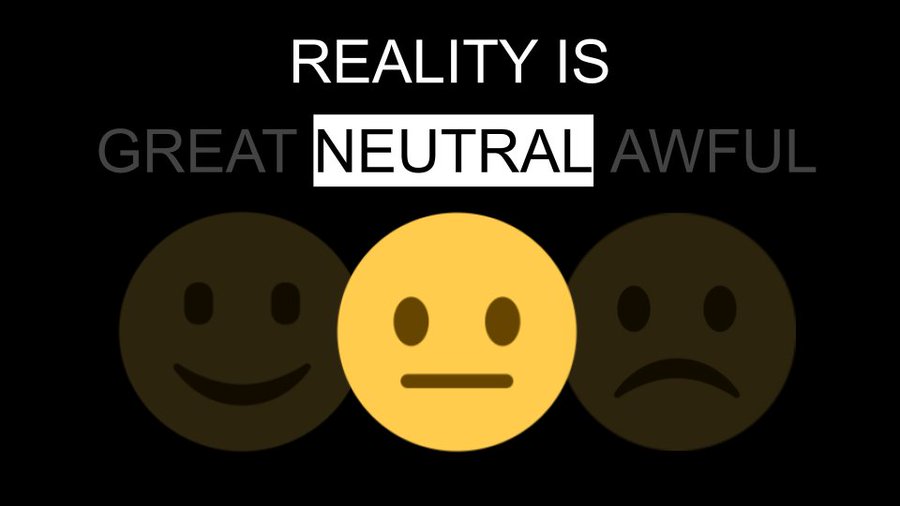Reality is Neutral
Ideas are like stars; you will not succeed in touching them with your hands. But like the seafaring man in the desert of waters, you choose them as your guides, and following them you will reach your destiny. Perhaps you could get a clearer idea of our destiny if we took time out to examine our ideas, and upgraded them if necessary. What things are most important to you? If you could do anything you wanted to be, what would you be? If you could achieve a single objective in life, what would it be?
If we truly believed we were so much better than squirrels, why have we spent thousands of years driving home the point?” — Crispin Sartwell (Dickinson) on the “disaster” of emphasizing our differences with other animals, rather than our similarities
“How did a word for a philosophical ideal come to be used for an unromantic relationship?” — Merriam-Webster’s Word History column takes up “Platonic”
“Philosophy has never been so modern” — “La Faute à Rousseau,” a French television show about a high school philosophy teacher, is getting good reviews
The philosophers most retweeted in the past week by other philosophers on Twitter — a regularly updated list from Kelly Truelove that offers a view of which tweets have resonated most with philosophers on the social media platform
“Even if you are completely unsympathetic to Rawls and his project, you will learn so much… Rawls is worth your time” — Lawrence Solum (UVA) on Rawls on his 100th birthday
“The field has evolved” in terms of race, but there’s a recognition of “how far it still has to go” — a promotional but nonetheless informative piece about Black philosophers at the University of Pennsylvania
In honor of Rawls’s 100th birthday — a collection of essays on Rawls that have appeared in Boston Review, and one by Rawls himself
The idea that we should tax the rich to fund public services and transfers to the poor seems obvious from an egalitarian perspective, at least as long as we are in a society with significantly unequal incomes. But it has been challenged recently by some advocates of Modern Monetary Theory.
[note: The meaning of ‘rich’ is rarely spelt out, and isn’t very helpful. Hardly anyone is willing to admit to being rich, so the discussion tends to focus on a handful of cases like Bill Gates, rather than on people in the top 1 per cent or 10 per cent of the income distribution. So, from now on, I’m going to use the term ‘high-income’ and refer to proposals raising taxes on some subset of the top 10 per cent.]
Over the fold, an extract from my book-in-progress, The Economic Consequences of the Pandemic
[click to continue…]In 1961, Tom Rogers of the Leo Burnett Agency created Charlie the Tuna, a jive-talking cartoon mascot and spokesfish for the StarKist brand. The popular ad campaign ran for several decades, and its catchphrase “Sorry, Charlie” quickly hooked itself in the American lexicon.
When the CIA’s Office of Advanced Technologies and Programs started conducting some fish-focused research in the 1990s, Charlie must have seemed like the perfect code name. Except that the CIA’s Charlie was a catfish. And it was a robot.
I DON’T EVEN TRUST BIG MOUTH BILLY BASS: Meet Catfish Charlie, the CIA’s Robotic Spy.
Why do cats purr? BBC Science Focus
‘This is bigger than just Timnit’: How Google tried to silence a critic and ignited a movement Fast Company
Has a startup finally found one of food science’s holy grails with its healthy sugar substitute?TechCrunch
Study: Antifouling May be a Major Source of Microplastic Pollution Maritime Executive
Seagrass Is A Vital Weapon Against Climate Change, But We’re Killing It HuffPo


